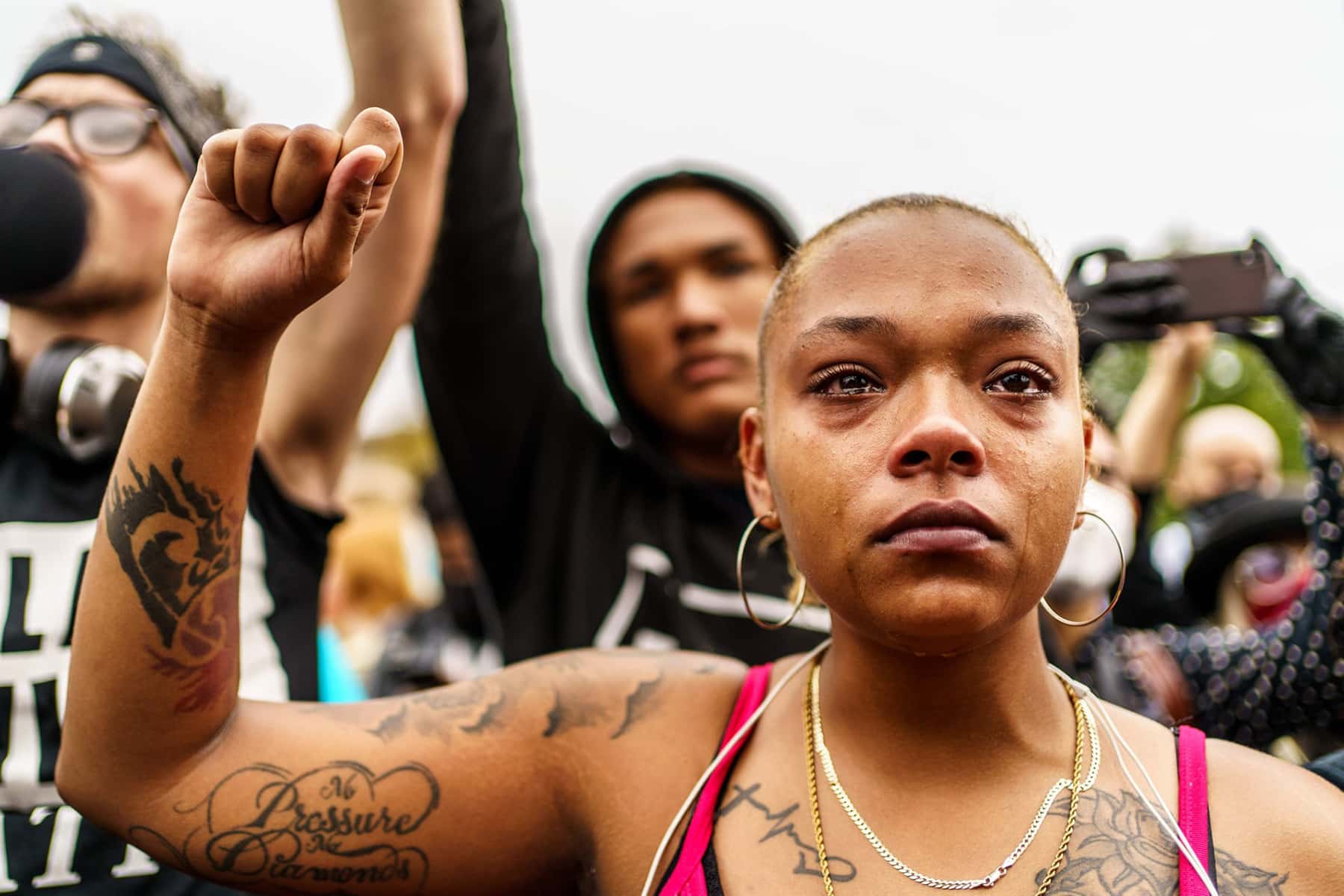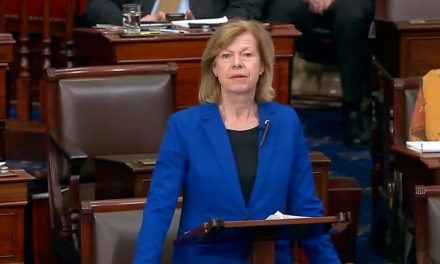
Political Definition: (adjective) of, relating to, or concerned with politics: exercising or seeking power in the governmental or public affairs of a state, municipality, etc.
Partisan Definition: (adjective) of, relating to, or characteristic of partisans; partial to a specific party, person, etc.
I am so tired of people claiming that talking about racism is political. What infuriates me most is the notion that this is something new. Were conversations about ending slavery political? Yes, of course they were. Was the debate about citizenship for Native Americans political? Yes it was as well. Was the issue of placing Japanese in internment (concentration) camps not political? Once again yes. What’s so wrong with issues being political? What major social issue in some way isn’t political?
When Republicans were attacking welfare and the Democrats under Clinton jumped on the bandwagon, was that not political? When the Southern Congressmen, outraged over the Brown V. Board decision wrote the Southern Manifesto was that not a political statement? When Dr. King led the Civil Rights Movement was it not a hotly contested issue in legislative halls around the country? The debates leading to the 13th, 14th, and 15th Amendments to the Constitution, The Civil Rights Act of 1875, The Voting Rights Act of 1965, the Federal Fair Housing Act of 1968, were all about racism and all of them were openly discussed by politicians.
Now all of a sudden, to talk about racism is “too political” and people are being intimidated into not even having a conversation about it. Don’t fall for this trick. All of the pushback is coming from the same direction. They are the people who wish to end the discussions and outlaw racial equity training.
The Republican Party and the Democratic Party have been battling one another for a long time in this country. Most people are unaware that at one time there was a political party known as the Democratic-Republicans. This was a party which supported Thomas Jefferson and his belief in a decentralized, small, limited government. This was in contrast with the Federalist Party who supported George Washington, Alexander Hamilton, and John Adams who all felt a strong central government was the best fit for the new republic.
As the power of the Federalist Party waned over the years the Democratic-Republicans became the most powerful political party. George Washington railed against political parties in his 1796 Farewell Address.
“I have already intimated to you the danger of parties in the State, with particular reference to the founding of them on geographical discriminations. Let me now take a more comprehensive view, and warn you in the most solemn manner against the baneful effects of the spirit of party generally. This spirit, unfortunately, is inseparable from our nature, having its root in the strongest passions of the human mind. It exists under different shapes in all governments, more or less stifled, controlled, or repressed; but, in those of the popular form, it is seen in its greatest rankness, and is truly their worst enemy.”
He was not alone in thinking that political parties were problematic. Parties were never mentioned in the Constitution and most early leaders and many of the Founding Fathers thought they would cause problems. Nevertheless the break between Hamilton and Jefferson led to the creation of the first two political parties in the country. The Federalist Party supported a foreign policy which favored the British while the Democratic-Republicans supported France instead.
Another strong disagreement was based on the economic system. The Democratic-Republicans supported the working class and favored an agrarian economy. The Federalists wanted manufacturing and industry to be the drivers of the economy.
These early differences led to some discord but eventually the Federalist Party lost support in Congress. The Democratic-Republicans eventually began to argue among themselves. In the 1824 presidential election, four Democratic-Republicans ran against one another. The results led to a mess. Andrew Jackson won 99 electoral votes; John Quincy Adams won 84; William H. Crawford won 41 and Henry Clay won 37 electoral votes.
The House of Representatives had to settle the dispute and select a President. They selected John Quincy Adams. This led to a splitting of the Democratic-Republicans into two new parties. Jackson’s supporters eventually formed the Democratic Party and those who supported John Quincy Adams and Henry Clay formed the National Republican Party which later disbanded and became the Whig Party. Four years later Jackson running under the Democratic Party banner won a decisive victory becoming the seventh man to serve as U.S. President.
The 1828 victory by Andrew Jackson led to what has come to be known as Jacksonian Democracy. The newly formed Democratic Party espoused a strong presidency and executive branch, universal White male voting rights dropping the property ownership requirement, patronage or appointing supporters into appointed offices, a laissez-faire approach to the economy, manifest destiny, and largely ignored the issue of slavery.
In 1854 the Republican Party was formed. Anti-slavery supporters, many of them former Democratic, Whig and Free-Soil party members met for the first time in Ripon, Wisconsin in May 1854 and later in Jackson, Michigan in July 1854 to found a new party they would call the Republican Party. In 1856 their platform called for Congress to abolish slavery in the territories. John C. Fremont was nominated as their presidential candidate. Democratic candidate James Buchanan called the Republicans extremists and warned that a victory by them would lead to a civil war. James Buchanan had replaced incumbent President Franklin Pierce who lost the support of and nomination for a second term by his party. Buchanan won the election receiving 45 percent of the popular vote and 174 electoral votes. Fremont received 41 percent of the popular vote and 114 electoral votes with the remaining 8 electoral votes going to Millard Fillmore of the American Party.
The Republican Party was founded on the basic principle of ending the spread of the slavery. Interestingly, William L. Dayton was nominated 523 to 20 over Abraham Lincoln for Vice President in the party’s first run at the White House in 1856. In 1860 Lincoln was the Republican presidential candidate, won the election, and six weeks later Southern states seceded leading to the Civil War.
Along the way the two parties spilt from their foundational principles as it relates to Black people and their condition. The Republican Party would become known as the party of Lincoln. When Black men received the right to vote after passage of the Fifteenth Amendment it was the Republican Party that courted them for decades.
The famed Black sociologist and leader W.E.B. DuBois believed the franchise was a valuable tool to gain equality for Blacks. He dismissed Booker T. Washington’s claim that Blacks could get ahead without fighting for voting power and an end to segregation.
DuBois did not care about political parties and instead judged presidential candidates based on what they claimed they would do for the uplift of the Black community. He believed in voting “for a third party even when its chances were hopeless, if the main parties were unsatisfactory; or, in absence of a third choice, voting for the lesser of two evils.” In 1912, incumbent William Howard Taft and Progressive Party (Bull Moose Party) candidate Teddy Roosevelt refused to reach out to Black voters. DuBois against the advice of other leaders in the Black community, told his followers to vote for Woodrow Wilson instead. The Democrat Wilson, tricked DuBois into believing he would fight for Black causes. DuBois “hinted that under his inspiring leadership, the Democratic Party and the African American could find a modus vivendi.” It did not work. In fact it was an absolute disaster.
Wilson quickly worked to segregate the federal workforce. DuBois wrote an impassioned letter asking the President to reverse his policies without success. DuBois would continue to vote for candidates from whichever party spoke most openly about issues related to the Black cause over the next forty years. Finally in 1956 he became so disenchanted with the votes and choices he’d made that he gave up on voting for president.
He wrote an article which appeared in the The Nation magazine in October 1956 entitled “I Won’t Vote.” In the article he stated his frustrations by saying the campaign pitting Republican Dwight Eisenhower against Democrat Adlai Stevenson was a battle of “one evil party with two names and it will be elected despite all I can do or say … Democracy is dead in the United States…Is the refusal to vote in this phony election a counsel of despair? No, it is dogged hope. It is hope that if twenty-five million voters refrain from voting in 1956 because of their own accord … this might make the American people ask how much longer this dumb farce can proceed without even a whimper of protest.”
Blacks had shifted their allegiance to the Democratic Party. It did not matter to the segregationists members of Congress from the South because they had already disenfranchised most Black voters in the South over decades. These Democrats, some on whom later formed the Dixiecrat Party, could care less about Black voters. Being some of the most powerful members of Congress, they pushed policies which in many cases were against everything Blacks believed in, but the Republican Party was no better.
Those Southern White voters were staunch Democrats as well. In the 1968 election Richard Nixon lost the states of Arkansas, Louisiana, Mississippi, Alabama and Georgia to George Wallace. He won every other Southern state except Texas. Nixon was determined to win those states he lost to Wallace in 1972 and developed a plan known as the Southern Strategy. He would pander to the racist beliefs of Whites in those states while campaigning on a “law and order” platform. It worked spectacularly.
In 1972 in Arkansas Nixon won 69% vs just 31% in 1968; in Louisiana he went from 23% in 1968 to 65% in 72; in Mississippi he won just 13.5% in 68 but 78% in 1972; in Alabama Nixon won only 14% in 1968 but 72% in 1972; Georgia shifted its allegiance from just 30% voting for Nixon in 68 to 75% in 1972. Only Southerners Jimmy Carter in 1976, and Bill Clinton in 1992 and 1996 were able to win support in many Southern states running as Democrats. Obama in 2008 won just Virginia, Florida, and North Carolina and only Virginia and Florida in 2012. With the exception of those cases, the South has been solidly Republican since Nixon won in 1972.
The Republican Party has used similar raced-based platforms to win presidential elections for the past five decades after Nixon figured out how to do it. Clinton as a Democrat also used similar “law and order” rhetoric when he was elected winning the Deep South states of Arkansas, Missouri, Louisiana, Georgia, Kentucky and Tennessee in 1992, and Arkansas, Missouri, Louisiana, Florida, Kentucky and Tennessee in 1996.
Blacks have given overwhelming support to the Democratic Party in presidential elections feeling much like DuBois that the party represented the best opportunity for issues related to Blacks to be heard at the national level. Going back to 1976 the percentage of Blacks voting for Democrats nationally has followed a clear pattern (76’- 83%, 80’-83%, 84’-91%, 88’-89%, 92’-83%, 96’-84%, 2000’-90%, 04’-88%, 08’-95%, 12’-93%, 16’-89%). Likewise a smaller majority of Whites have voted for the Republican Party over the same period with the except of the Ross Perot years in 92 and 96 (76’- 52%, 80’-56%, 84’-66%, 88’-60%, 92’-41%, 96’-46%, 2000’-55%, 04’-58%, 08’-55%, 12’-59%, 16’-57%).
So partisan politics has been the norm when it comes to the Black experience. Consistently, most Blacks over the past five decades have felt very strongly that Republicans are against policies which will mitigate the impact of racism.
So when we hear the strong voices for change today, the topic of systemic racism is one shaped by race and consequently shapes the party affiliation of voters. Blacks still feel strongly that racism is a major issue and will continue to vote for Democrats because the party at least speaks in a way that supports the effort to mitigate racism while Republicans for the most part consistently do the opposite.
As America argues with itself over issues of systemic racism, those who’ve said loudly and clearly that systemic racism is not real are Republicans. As a result, their party has placed its followers in the camp of those who want to push back against conversations and training about the history of systemic racism.
This is when the words “politics” and “partisanship” come into the conversation. Republicans tell us that we should not talk about racism and try to convince us that even having the conversation is “political.” They argue this point in an attempt to shutdown the conversations in the White community. In their way of thinking, talking about racism is bad and therefore now a “partisan” issue that only the Democrats bring up.
It is once again an attempt to close off serious conversations about racism in this country. They never complained that issues related to race were political in the past. In fact they clearly articulated that those issues were partisan issues in the past. Now because more White people are in the camp of those talking about racism in a strong way, the Republicans are using the words “political” and “partisanship” as a hammer to shut down those talking about racism.
It is clear they want to talk about racism in a dishonest way or not at all. They use dog-whistle language like a magic tool to talk about race without appearing to do so. We’ve broken the code. It doesn’t work. We can see through the facade. It’s time more White people who claim they want to be on the right side of history see through the dishonesty.
Don’t let people in your community who don’t want you to discuss racism shut you down by claiming it’s “political” or “partisan.” It’s a poor attempt to deceive. Those who pay attention will fight to keep the issue on the table despite those conservative folk in their community who want to push it off the table and stifle real change.
“We of the less favored race realize that our future lies chiefly in our own hands…But…it is necessary that you of the favored race catch a new vision and exemplify in you actions the new American spirit…embodying the desire to relieve the manifest distress of your fellows.” – Rutgers University 1919 Commencement Address, Paul Robeson
© Photo
Kеrеm Yucеl














